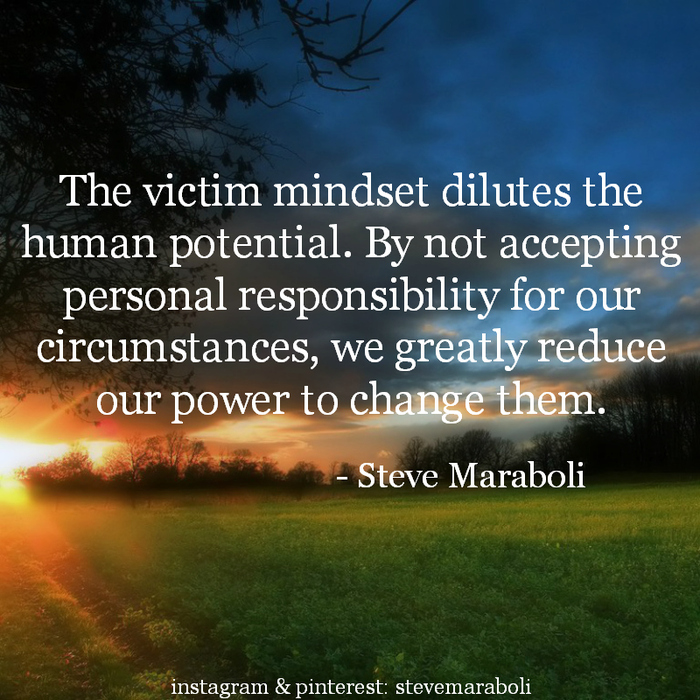Forget Me Not: Taking on Personal Responsibility

There comes a time in each of our lives where we have to make a choice — the choice to take full ownership of our lives. As I have stated several times over, about so many issues that arise after abuse has ended, this is no simple task. However, it is a very important one. Taking ownership of your life is the difference between staying stuck and living the life you deserve.
As survivors of domestic violence, we often come out the other end a bit lost. Well, a bit lost is likely an understatement. We often come out the other end very, very lost. As is usually the case, I can only speak to my experiences, but I’m sure many will see common themes between my story and theirs.
I started dating my husband at the age of 15. We were both young and, in many ways, grew up together. He wasn’t abusive from day one, although there were signs I didn’t see. All in all, we spent 16 years together. When I finally left, it was bittersweet. I was ready to move on, emotionally and physically exhausted, and needy for love and attention, yet I was leaving the only relationship I knew and heading out on my own. Although I was scared, joy washed over me like a tidal wave of positivity. I was high on freedom. The simplest of things, like going to bed and waking up when I wanted to, were so exciting that I could see no bad in my life.
That lasted for all of about three months. Once the initial rush of being free from him wore off, the realities of life after abuse started to set in. With each negative thing that happened, I fell deeper and deeper into a life of anger and bitterness. While I struggled to pay the bills and finish school, he was working a great job. While I struggled to form solid relationships, he was getting remarried. Soon I found myself in a routine thought pattern being run by my hate and anger towards him. It was his fault I had no money, his fault I lost so much in the divorce, his fault I was in my 30s and back in school, his fault I had no children, and his fault that I was so screwed up.
He had messed me up so bad that I was damaged goods. I was depressed and anxious, struggling to focus at work, and a mess in the dating world. My friends were few and far between and I never believed I was a priority to anyone. They had better things to do than to be with me, and it seemed that everyone around me was better at life than I was. Everything was simply falling apart.
And then I got sick. My body finally succumbed to all the stress and literally started to shut down on itself. I was sleeping over 13 hours a day, could not walk around the block, and gained over 30 pounds in less than a year. My life was falling apart, and it was all his fault.
Or, was it? You see, I wanted it to be all his fault. If it wasn’t his fault, then I was the failure he told me I would be. If I didn’t believe it was his fault, then he was right that no man would want me. If I didn’t believe it was his fault, then that meant that I was one very messed up individual. I needed it to be all his fault.
The problem with this mentality, though, is that making it his fault did not do anything to improve the life I was living. In actuality, it only made things worse. The more angry and bitter I got, the more depressed I became and the less I lived and enjoyed my life. Don’t get me wrong, his actions did cause me a lot of grief and heartache. I struggled for years with thought patterns and beliefs about myself because of my relationship with him. There is fallout. It does hurt and affect your life. But, you can come back from it.
It took me hitting rock bottom and deciding that I could not live this life anymore before I sought help. It was only then that I learned that holding onto the past does not create a better future. I had to let go, make peace with the fact that my past was what it was, and decide to move forward. I had to take ownership of my life and start making it what I wanted it to be.
One can spend their whole life, or many years of it, blaming others (outwardly or inwardly) for their life situations. But it is up to us to own whatever is ailing us. I’m not sure how to say this the right way, so bare with me. It is not your abuser’s fault that you are depressed, an alcoholic, self-destructive, lost your job, or are struggling in life. Unless there are specific actions that lead to a specific low in your life (Abuser lies to boss = you lose your job/Abuser lies to court = negative outcome regarding child custody), then you have to let it go.
The fallout from abuse is real and we will all react to it in different ways, from substance abuse and self-destruction, depression and lack of self-care, to hurtful behavior towards others. It is up to you to take responsibility for your happiness and do what is necessary to let go of the past, place blame aside, and do what you have to do to get moving forward. You are responsible for your happiness, your success, and your wellbeing. Go out there and get it!
Read the Forget Me Not Series here and visit the Forget Me Not Advocacy Group’s website.
